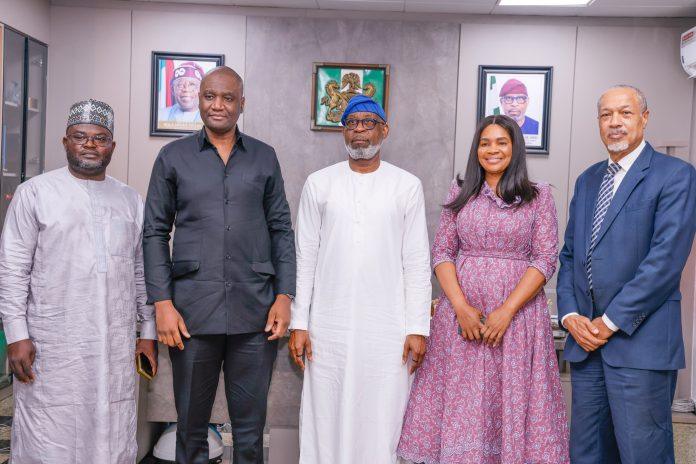Interventions for the development of agriculture in Nigeria have begun to take a different shape with corporate business entities designing and integrating support initiatives into their activities. Apart from the federal government’s financial support scheme being implemented through the Central Bank of Nigeria, farmers, agric entrepreneurs and players in the sector’s value chain have been opened to new humanitarian options as the British American Tobacco Nigeria Foundation (BATNF) has earmarked N700 million to fund the development of agricultural businesses across rural regions of the nation for the next four years.
The commitment, integrated in its 2018/22 country programme comes in addition to the N1.5 billion injected in the last 16 years of rendering technical, economical and environmentally sustainable support to smallholder farmers.
With the grant, the foundation said it would identify and proffer solutions, particular to farmers and academic institutions, through partnerships with government agencies such as the Nigerian Meteorological Agency for credible weather predictions, enterprise development and the Federal Ministry of Agriculture and Rural Development (FMARD).
The programme will specifically focus on the creation of market access through market driven interventions, propel value addition in crops and aquaculture, promote adoption of mechanised practice, provide humanitarian aid to internally displaced farmers and promote youth engagement, among others.
Kola Jamodu, the chairman of BATFN, who spoke at the launch of the country programme in Lagos said the foundation has identified agriculture as a potent instrument of lifting rural communities out of impoverishment as the sector holds the largest number of employers and accounts for about 25 percent of Nigeria’s gross domestic product (GDP).
He believes the future welfare of the rural population and the food security standing of Nigeria will be tied to the growth potentiality of agriculture.
“Till date we have 180 programmes across the 36 states and have spent almost N1.5 billion in empowering rural Nigeria. The launch of this programme confirms the passion and commitment that guides the foundation’s programmes and implementation of activities that are geared towards empowering rural Nigeria for a sustainable future,” he said.
Chris McAlister, the managing director, Nigeria and West Africa, British American Tobacco, reiterated the foundation’s dedication to improving rural livelihood, saying agriculture is the only sector capable of absorbing the unemployed labour force in the country.
He assured that more funding and other necessary assistance will be given to the 73.2 percent of less privileged households.
“I encourage all government ministries, parastatals, states, agencies and implementing partners to leverage on the grants and opportunities made available to ensure the realization of the set goal to empower rural Nigeria for a sustainable future.”
However, Tonye Cole, the executive director and co-founder of Sahara Group expressed disappointment in the fact that critical humanitarian needs remain a challenge that propels corporate entities to make interventions. Until there are no farmers struggling with poverty or children who have no means of surviving than begging, the sustainable development goals cannot be said to have achieved success.
He said: “For me, it’s disturbing for a country like ours, blessed with skills and with statistics that we know, to still have foundations address our problems. There is no reason why 70 percent of our population should remain in poverty. There is no reason why companies like British American Tobbacco operating in our country still have to create a foundation to impact people within the same nation. I think it’s quite a shame for us as a people. What will it take for us to have one more child not suffer from malnutrition?”
Meanwhile, Abimbola Okoya, executive director of BATNF, urged other private sector organisations to join the federal government in its drive for sustainable agriculture. She said the foundation will adopt model farming as an instrument to educate farmers and help them key into improved methods of practice.
“The programme, going forward, will have a model farm where surrounding farmers can actually learn from and use that to build private capacity. That is very strong on our agenda,” she said.
“One of the main aims of this initiative is moving farmers from subsistent way of farming to a more commercialized practice which is really moving them from just farming to feed their families to actually looking at agriculture as a business and because of the level which we are meeting some of the farmers, some of the interventions from the foundation actually helps in terms of moving them. We provide supports in terms of seeds, building capacities and then we also provide support in terms of using mechanization in the farming processes,” she explained.
The foundation she said was also prioritising capacity building for farmers through fundamental education of good agronomic practices in order to solve the challenge of low yields, commonly suffered in crop production.
According to the Lolade Johnson-Agiri, the general manager, the foundation has identified a gender and age gap in the agricultural sector which would be addressed through intensive online campaigns and advocacy on social inclusiveness.
She said: “What we realized is that a lot of farmers are actually male, so we are targeting females because we know that when you empower women, you empower the household. We are also reaching out to young people who don’t necessarily live in the rural area but need support. We are targeting those with brilliant and innovative ideas and need empowerment to create viable and sustainable business.”
While 70 percent of agricultural produce are from rural communities by small holder farmers, older farmers have been found less likely to adopt new technologies needed to sustainably increase agricultural productivity, therefore raising a need to engage youths.








